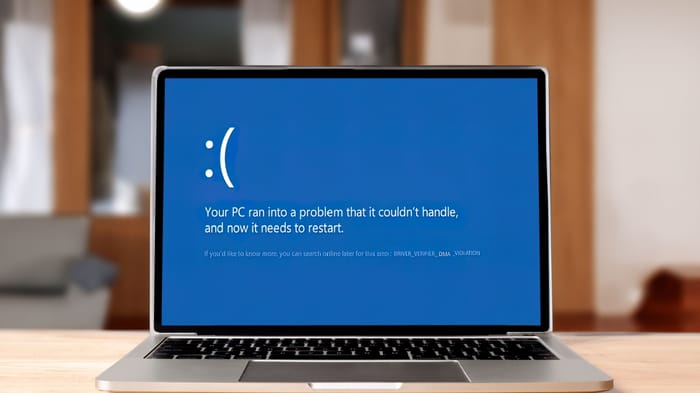The Cold Truth about Cyber Insurance
There is no premium that will recover the millions of dollars your company spends on R&D if your intellectual property is hacked and stolen.

Cyber insurance policies are designed to cover the costs of security incidents and breaches such as system forensics, data recovery, and legal and customer reparations costs. Typical incident types that are covered include invoice fraud, cryptolocker recovery, and insider threats. While cyber insurance has its place in a holistic approach to security, its place is misunderstood.
To start, it is imperative that organizations understand their critical digital assets and risks since the planful adoption of a cyber insurance policy is vitally important for managing premium costs and ensuring appropriate coverage. But cyber insurance is a post-fail risk offset and it should never replace a proper security program. When businesses overinvest in cyber insurance and underinvest in security controls, they are showing that they expect to be breached and have their insurers solve the problem, even though they won't. Yes, it is true that the frequency at which data breaches are reported is astounding, and hefty fines under data privacy laws are being issued more frequently. But the better approach for organizations is to pursue a proactive security strategy that is properly balanced with cyber insurance.
Cyber insurance is a relatively new and rapidly growing industry that did not really start catching on until 2005. A recent report by Adroit Market Research claims that the cyber insurance market will exponentially increase from approximately $4 billion in premiums around the globe in 2019 to a value of over $23 billion by 2025. Fueling this prediction is companies' reaction to recently enacted data privacy regulations around the world, such as the European Union's General Data Protection Regulation (GDPR) in May 2018.
Organizations legitimately fear the hefty fines and costs of reparations that suffering a breach can cause, such as the penalties levied upon British Airways and Marriott, and look to their insurers for plans that can help offset the costs associated with breach notifications and other recovery expenses. Yet, overreliance on cyber insurance without investing in proper controls shows that an organization is prepared to suffer a data breach and not effectively defend against it. While insurers can offset some costs, they cannot repair a company's reputation after a security incident or regain lost intellectual property (IP). The unfortunate truth is that if a company spends millions on research and development (R&D) and that IP is stolen, there is no premium that can recover the costs of that investment.
The Cloud
Another factor contributing to the popularity of cyber insurance is the rapid adoption of the cloud. But too often, businesses use cyber insurance as a security blanket to cover their cloud migration and configuration mistakes, as opposed to developing a proactive security program that benchmarks and continuously tests the efficacy of its controls.
Organizations must also understand that cyber insurance providers are for-profit businesses that do not want to pay premiums for breaches that could have been avoided with a proper security program. Similar to how the long-term care insurance industry will deny coverage to applicants that fail a health assessment, it would not be surprising if insurers become more restrictive about claims and even deny coverage to companies that lack the proper controls. For example, an insurer may choose to not pay or reduce the amount paid on a premium for a business that suffers an email compromise attack that could have been mitigated by multifactor authentication (MFA).
The FUD Factor
In today's constantly changing data privacy climate, there is no shortage of fear, uncertainty, and doubt surrounding insurers policies and claims classifications. One of the most famous examples of this involved Sony cyber insurer (Zurich American Insurance Co.)'s refusal to compensate the multinational conglomerate for an estimated $2 billion in losses from a 2011 data breach of 77 million users' personally identifiable information. Even after Sony brought Zurich to court, Zurich let Sony know that its policy did not cover any third-party hacking incidents.
At the end of the day, cyber insurance cannot and should not be seen as a replacement for a properly developed cybersecurity program. Cyber insurance can help offset post-fail costs, but it will not cover the costs of losing IP and it will give no comfort if a security program is not properly designed. Not only will an effective security strategy help a business obtain cyber insurance in the first place, but choosing to test the efficacy of the controls will help organizations identify flaws before an attacker can find them. This method will also allow companies to improve the return on investment of their cybersecurity budgets by identifying and getting rid of overlapping controls while demonstrating to all stakeholders that they actually take security seriously.
Related Content:
 Check out The Edge, Dark Reading's new section for features, threat data, and in-depth perspectives. Today's top story: "What a Security Products Blacklist Means for End Users and Integrators."
Check out The Edge, Dark Reading's new section for features, threat data, and in-depth perspectives. Today's top story: "What a Security Products Blacklist Means for End Users and Integrators."
About the Author
You May Also Like
Applying the Principle of Least Privilege to the Cloud
Nov 18, 2024The Right Way to Use Artificial Intelligence and Machine Learning in Incident Response
Nov 20, 2024Safeguarding GitHub Data to Fuel Web Innovation
Nov 21, 2024The Unreasonable Effectiveness of Inside Out Attack Surface Management
Dec 4, 2024




